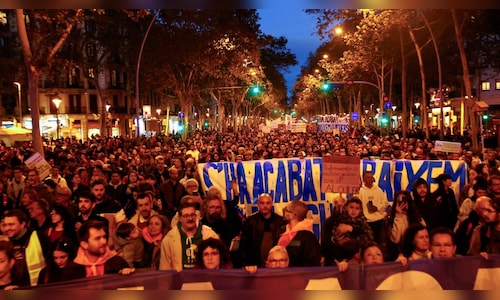
According to data from the Catalan Housing Agency, rental prices in Barcelona during the second quarter of 2024 were nearly 70% higher than during the same period in 2014, Reuters reported.
“We are spending half our wages on rent… This must stop!” said Carme, 28, a representative of a tenants’ union. In addition to Barcelona, smaller protests took place across Catalonia, as well as in Burgos, Asturias in the north, and Jerez de la Frontera in the south.
In response to growing concerns, the government announced measures in July to clamp down on short-term holiday rentals. It also revealed plans to investigate listings on platforms like Airbnb and Booking.com to ensure they are properly licensed.
Also read: Understanding overtourism beyond Bali and Barcelona
Protests have also been organised this year in other cities, including Madrid, the Canary Islands, and Malaga, where seasonal hospitality workers face difficulties in securing housing, with some resorting to living in caravans or even their cars.
Over the past decade, the average rent in Spain has doubled, with the cost per square meter climbing from 7.2 euros in 2014 to 13 euros this year, according to Idealista, a popular online real estate platform.
This surge is particularly pronounced in cities like Barcelona and Madrid, while wages have failed to keep pace, especially for younger people in a country grappling with persistently high unemployment.
Samuel Saintot, a protestor, shared his frustration and fear after being informed by the owners of the apartment he has rented for 15 years in central Barcelona that he must vacate. He believes the owners intend to renovate the apartment and increase the rent.
“Even looking in a 20- or 30-kilometer radius outside town, I can’t even find anything within the price range I can afford,” he told The Associated Press. “And I consider myself a very fortunate person, because I earn a decent salary. And even in my case, I may be forced to leave town.” A report from the Bank of Spain reveals that nearly 40% of Spanish renters allocate an average of 40% of their income to cover rent and utilities, a stark contrast to the EU average of 27% of renters facing similar financial strain.
(With inputs from agencies)



